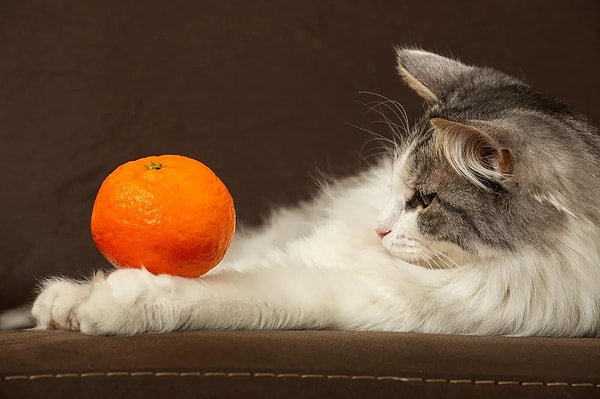Why Do Cats Hate the Smell of Citrus?
It's no secret that cats are curious creatures. They don't shy away from exploring new scents and objects. However, when it comes to citrus, the situation changes. Cats typically make a quick exit when they catch a whiff of lemon or orange. So, why does such an innocent scent trigger such a strong reaction in them? Let's delve into this together.
Cats possess a sense of smell that is far more advanced compared to humans.

While our noses house approximately 5 million olfactory receptors, cats boast a staggering number of up to 200 million. This allows them to perceive even the faintest of scents with a heightened intensity.
The chemical compound known as limonene, found in citrus fruits, may be pleasant to humans but it's extremely pungent and unsettling for cats. Concentrated in the peel of lemons and oranges, this substance leaves a burning sensation in the feline olfactory system. Consequently, upon detecting this scent, cats tend to wrinkle their noses and swiftly distance themselves from it.
The scent of citrus could pose a risk. But how, you may ask?

The oils found in lemon peels can cause irritation when they come into contact with a cat's skin. If these oils get onto their fur and are ingested during grooming, it can lead to digestive issues or skin diseases.
Therefore, it's important to keep lemon peels or citrus extracts out of reach of cats in the home. While some people may use lemon peels to deter cats from certain areas, it's crucial to remember that this is not a safe solution. Once the scent fades, cats may return to these areas, increasing the risk of contact.
Of course, not all cats steer clear of every smell.

Certain natural scents can pique their interest. Catnip, silvervine, cat thyme, honeysuckle, and valerian are among the fragrances that cats tend to enjoy. In fact, some cats may even respond positively to the fresh scent of basil or roses.
However, perfumes, room fragrances, or essential oils used in the home can be harmful to cats. Essential oils such as lavender, eucalyptus, and juniper can cause respiratory distress, allergies, or even poisoning in cats. Therefore, it's safest to avoid artificial fragrances when around cats.
Keşfet ile ziyaret ettiğin tüm kategorileri tek akışta gör!

Send Comment